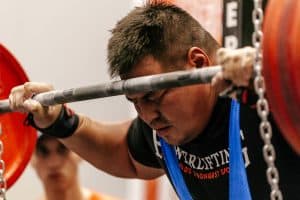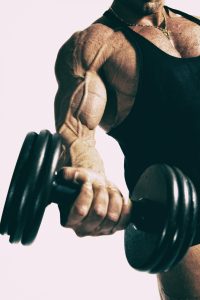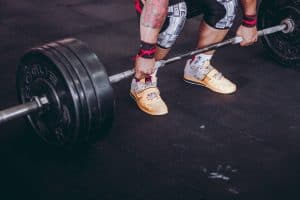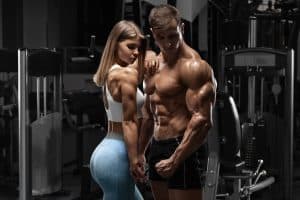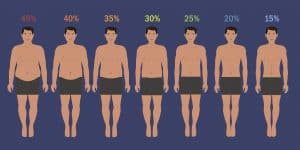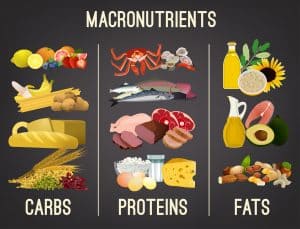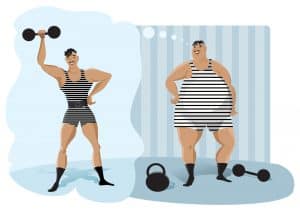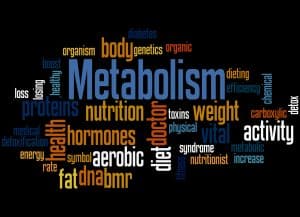An effective workout routine requires more than just the correct exercises and practicing proper form. The right vitamins can also help.
Athletes and fitness buffs incorporate vitamins in their diet with the hope of optimizing performance and improving recovery, among other benefits.
The global pre-workout supplement is a multi-billion-dollar industry. The choices abound, but not all of them are the same.
If you are looking for the best vitamins to take, read on and we’ll share some of the must-haves!
The Best Vitamins to Take Before Workout
A holistic lifestyle can help maximize the outcomes of your fitness regimen. It addresses your whole being, not just physical health. Among others, taking vitamins can help. Health experts claim that vitamins can fuel your routine and boost energy during your workouts.
1. Vitamin A
Most of you probably know that Vitamin A is a must for eye health. Beyond that, however, it is also revered for its potential benefits among athletes and fitness enthusiasts.
While many studies investigating the effects of Vitamin A when working out are mostly observational, the findings are interesting. For instance, in one research [1], it has been noted that people with low levels of Vitamin A are at high risk of suffering from bone fractures. A meta-analysis of cohort studies revealed that a high level of Vitamin A can reduce fractures by 6%.
There is also increasing evidence supporting the role of Vitamin A in immune function. It has the potential to demonstrate therapeutic effects as an anti-inflammation vitamin, making it another potentially good choice for boosting immunity and recovery.
Aside from taking supplements with Vitamin A, you can also incorporate it into your diet by eating leafy green vegetables, tomatoes, red bell pepper, eggs, carrots, cheese, and oily fish.
2. Vitamin C
If you work out regularly, taking Vitamin C before you exercise can be beneficial. Studies have explored its role in various biochemical pathways that are crucial for exercise metabolism.
The antioxidant of Vitamin C is perhaps another reason why some experts claim that it is good for those who work out.
It reverses oxidative damage that free radicals may cause. Free radicals are molecules that contain oxygen and at least one unpaired electron that can damage the muscle cell (inflammation) and cause aging and other illnesses. Especially for unfit individuals, insufficient antioxidants in the body increase the risk of exercise-induced free radical damage. As an antioxidant, Vitamin C can also be effective in the reduction of muscle soreness.
Additionally, pre-clinical studies [2] demonstrated the potential of Vitamin C to accelerate bone healing. It might also help in connective tissue repair, making it a good supplement for bodybuilders and other people who engage in strenuous activities with a high risk of connective tissue damage.
Amongst all the benefits of Vitamin C, the most popular is its ability to boost the immune system. Hence, it can also prevent a dip in your immune function after working out.
Citrus fruits are the most popular sources of Vitamin C. Nonetheless, it is also a common ingredient in green powders, which also contain probiotics, adaptogens, and antioxidants. That is why you’re encouraged to incorporate green powders in your diet, especially if you’re worried about the proper intake of vitamins for your exercises.
3. Vitamins B3, B6, B12
Active individuals with poor Vitamin B supplementation can be at risk of decreased exercise performance, especially at high intensities. Taking vitamin B has the potential to promote proper metabolism and energy production.
The role of Vitamin B in workouts is essential. It converts carbohydrates into glucose and creates energy. Thus, you’ll often find it as a common ingredient in pre-workout supplements.
Vitamin B3 increases adiponectin in the body. The latter is a fat cell hormone, which can be beneficial in promoting fat loss.
More so, you should consider taking Vitamin B6. It supports the craton of red blood cells in your body, providing more oxygen. Aside from faster recovery, it is also linked to aiding in muscular vascularity and growth.
Meanwhile, Vitamin B12, which is also known as an energy vitamin, is responsible for breaking down proteins and has a crucial role in muscle growth. It also supports the metabolic process, so you can have more energy when working out.
4. Vitamin D
Also known as the sunshine Vitamin, the best source of Vitamin D is natural sunlight. Nonetheless, for those who aren’t getting enough sun, it is also a common ingredient in workout supplements.
Vitamin D is revered for its sports health benefits [3]. As a potent secosteroid hormone, it can deliver skeletal and extraskeletal benefits. Sufficient Vitamin D is believed to be crucial for optimal muscle function. It can also increase muscle protein synthesis while reducing pain and inflammation.
In a study of almost 2,000 individuals [4], the participants were divided into groups based on their Vitamin D levels. Their cardiorespiratory fitness was evaluated. After a treadmill test, the result showed that those with higher Vitamin D levels performed better.
It should also be pointed out that Vitamin D is good for joint health. It helps the body in the absorption of calcium, which is vital for having strong bones.
5. Vitamin E
Vitamin E is good for the skin – this is a fact that most of you are probably aware of. However, some of you might not be familiar, but it can also potentially improve your exercise performance.
An important vitamin for physical exercise [5], it protects muscle tissues during aerobic activities that accelerate free radical production.
In a study that involved Vitamin E–deficient animals, oxidative tissue damage was worsened by endurance training.
Conversely, the muscle cell damage was reduced after Vitamin E supplementation. The result was the same in preliminary studies involving human subjects.
More so, Vitamin E can prevent exercise-induced lipid peroxidation [6]. This is associated with the benefit of Vitamin E in the prevention of oxidative damage, which stems from the role of Vitamin E as an antioxidant.
In closing
The cumulative effect of vitamins, which add up significantly over time, can vastly help in your workout and overall health and fitness. Depending on the specific vitamin that you take, it has the potential to improve performance, increase fat loss, and enhance recovery, among other benefits.
References
[1] Zhang X, Zhang R, Moore JB, Wang Y, Yan H, Wu Y, Tan A, Fu J, Shen Z, Qin G, Li R, Chen G. The Effect of Vitamin A on Fracture Risk: A Meta-Analysis of Cohort Studies. Int J Environ Res Public Health. 2017 Sep 10;14(9):1043. doi: 10.3390/ijerph14091043. PMID: 28891953; PMCID: PMC5615580.
[2] DePhillipo NN, Aman ZS, Kennedy MI, Begley JP, Moatshe G, LaPrade RF. Efficacy of Vitamin C Supplementation on Collagen Synthesis and Oxidative Stress After Musculoskeletal Injuries: A Systematic Review. Orthop J Sports Med. 2018 Oct 25;6(10):2325967118804544. doi: 10.1177/2325967118804544. PMID: 30386805; PMCID: PMC6204628.
[3] Shuler FD, Wingate MK, Moore GH, Giangarra C. Sports health benefits of vitamin d. Sports Health. 2012 Nov;4(6):496-501. doi: 10.1177/1941738112461621. PMID: 24179588; PMCID: PMC3497950.
[4] Marawan A, Kurbanova N, Qayyum R. Association between serum vitamin D levels and cardiorespiratory fitness in the adult population of the USA. European Journal of Preventive Cardiology. 2019;26(7):750-755. doi:10.1177/2047487318807279
[5] Gerster H. Function of vitamin E in physical exercise: a review. Z Ernahrungswiss. 1991 Jun;30(2):89-97. doi: 10.1007/BF01610064. PMID: 1897277.
[6] Takanami Y, Iwane H, Kawai Y, Shimomitsu T. Vitamin E supplementation and endurance exercise: are there benefits? Sports Med. 2000 Feb;29(2):73-83. doi: 10.2165/00007256-200029020-00001. PMID: 10701711.


